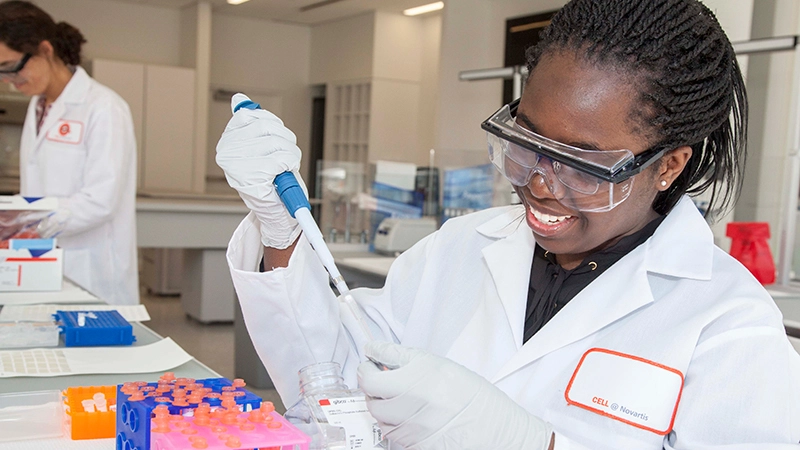
Our goal is to excite the local Cambridge community about biomedical science and drug discovery through hands-on experimentation and minds-on problem solving. We have created an expeditionary science curriculum to connect Cambridge Public School science lessons with NIBR research activities by engaging local science teachers, school administrators and other educators. Our scientist volunteers mentor and coach students during the lessons and provide authentic stories about their education and career path.
CELL offers biomedical laboratory experiences to middle/upper school (6th-8th grade) and high school (9th-12th grade) students; students must be at least 11 years of age to participate in a CELL experience.